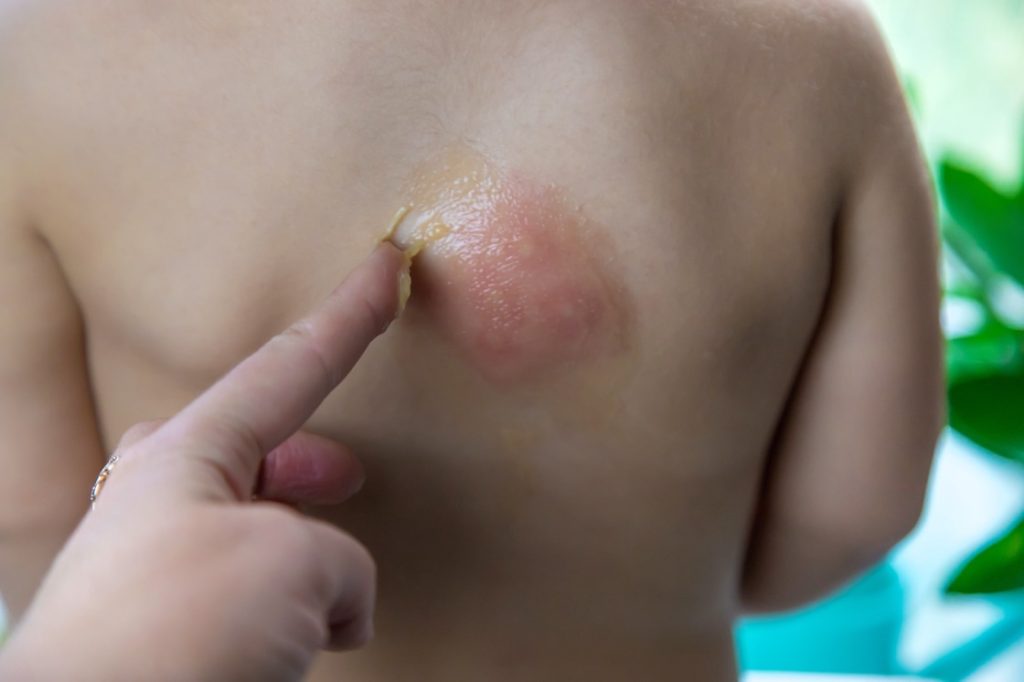Insect bites are common and usually harmless. However, sometimes an insect bite can become infected. Recognising the signs of an infection is important to ensure proper treatment and to prevent more serious health issues. This article will help you understand the symptoms of an infected insect bite, how to prevent infections and what to do if you suspect an infection.
What are Insect Bites?
Insect bites happen when an insect, like a mosquito, flea or spider, pierces the skin to feed on blood. Most insect bites cause minor irritation, such as redness, itching and swelling. These symptoms usually go away on their own within a few days. However, if bacteria enter the bite wound, it can become infected.
Signs and Symptoms of an Infected Insect Bite
Recognising the signs and symptoms of an infected insect bite is important for timely intervention and treatment. Here are the key indicators that an insect bite may be infected:
- Increased Redness and Swelling: If the area around the bite becomes redder and swollen over time instead of improving, it might be infected. The redness may spread out from the bite site in a circular pattern.
- Warmth: Infected bites often feel warm to the touch. This warmth is due to the body’s immune response to the infection, which increases blood flow to the area.
- Pain and Tenderness: An infected insect bite can become painful. The pain might start as mild discomfort and worsen over time. The area may also be tender to touch.
- Pus or Discharge: If you notice any pus or yellowish discharge coming from the bite, it’s a clear sign of infection. Pus indicates that the body is fighting off bacteria.
- Hardening of the Skin: The skin around the infected bite may become hard or feel lumpy. This hardening is a sign of an underlying infection.
- Fever and Chills: If the infection is severe, it can cause systemic symptoms like fever and chills. This means the infection might be spreading and requires prompt medical attention.
- Swollen Lymph Nodes: Lymph nodes near the bite (in areas like the neck, armpits or groin) may become swollen and tender. This swelling occurs because the lymphatic system is working to fight the infection.
Prevention of Infected Insect Bites
While most bites heal on their own without any issues, some can become infected if not properly cared for. Preventing infection is easier and less stressful than treating one. Here are some effective strategies to help you prevent infected insect bites:
- Keep the Bite Clean: As soon as you notice an insect bite, wash it with soap and water. Keeping the bite clean helps prevent bacteria from entering the wound.
- Avoid Scratching: Scratching an insect bite can break the skin, making it easier for bacteria to enter. Try to avoid scratching, even if the bite is very itchy. Using anti-itch creams or taking antihistamines can help reduce itching.
- Apply Antiseptic: After cleaning the bite, apply an antiseptic cream or lotion. Antiseptics can kill bacteria and reduce the risk of infection.
- Cover the Bite: If the bite is in an area that can easily get dirty, cover it with a clean bandage. This protects the bite from dirt and bacteria.
- Monitor the Bite: Keep an eye on the bite for any signs of infection. Early detection is key to preventing more serious problems.
How to Treat Infected Insect Bites?
Insect bites are usually harmless and heal on their own. However, if an insect bite becomes infected, it requires prompt attention to prevent further complications. Here’s a comprehensive guide on how to treat infected insect bites effectively:
- Clean the Area: Wash the infected bite with soap and water. Keeping the area clean helps prevent the infection from getting worse.
- Apply an Antibacterial Cream: Use an over-the-counter antibacterial cream to help fight the infection. Apply it according to the instructions on the package.
- Take Pain Relief: If the bite is painful, you can take over-the-counter pain relief medication like ibuprofen or acetaminophen. These can help reduce pain and inflammation.
- Seek Professional Advice: If the infection doesn’t improve within a few days or if it gets worse, see a doctor. Our pharmacists can prescribe antibiotics if needed.
- Follow Medical Instructions: If our pharmacists prescribe antibiotics, take the full course as directed. Even if the infection seems to clear up, finishing the medication is important to ensure all the bacteria are killed.
Worried About an Insect Bite? Connect with our Experts Online!
Recognising the signs of an infected insect bite is important for timely treatment and preventing complications. If you suspect an infection, taking prompt action with cleaning, antibacterial creams and seeking expert advice when necessary can help ensure a quick recovery.
Get expert advice from the comfort of your home with Touchwood Pharmacy’s online consultation service. Our professional pharmacists are ready to help you identify and treat any signs of infection, providing personalised care and recommendations. Don’t wait for the symptoms to worsen. Schedule your online consultation today.



















